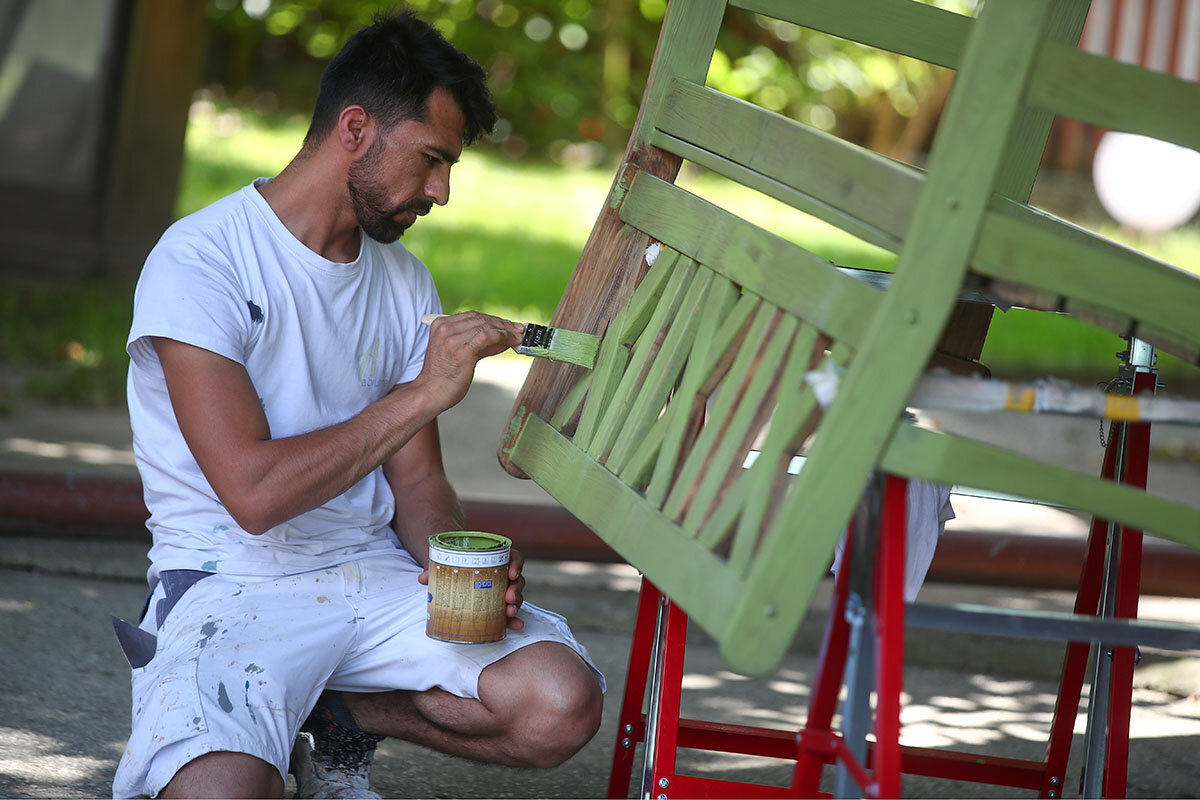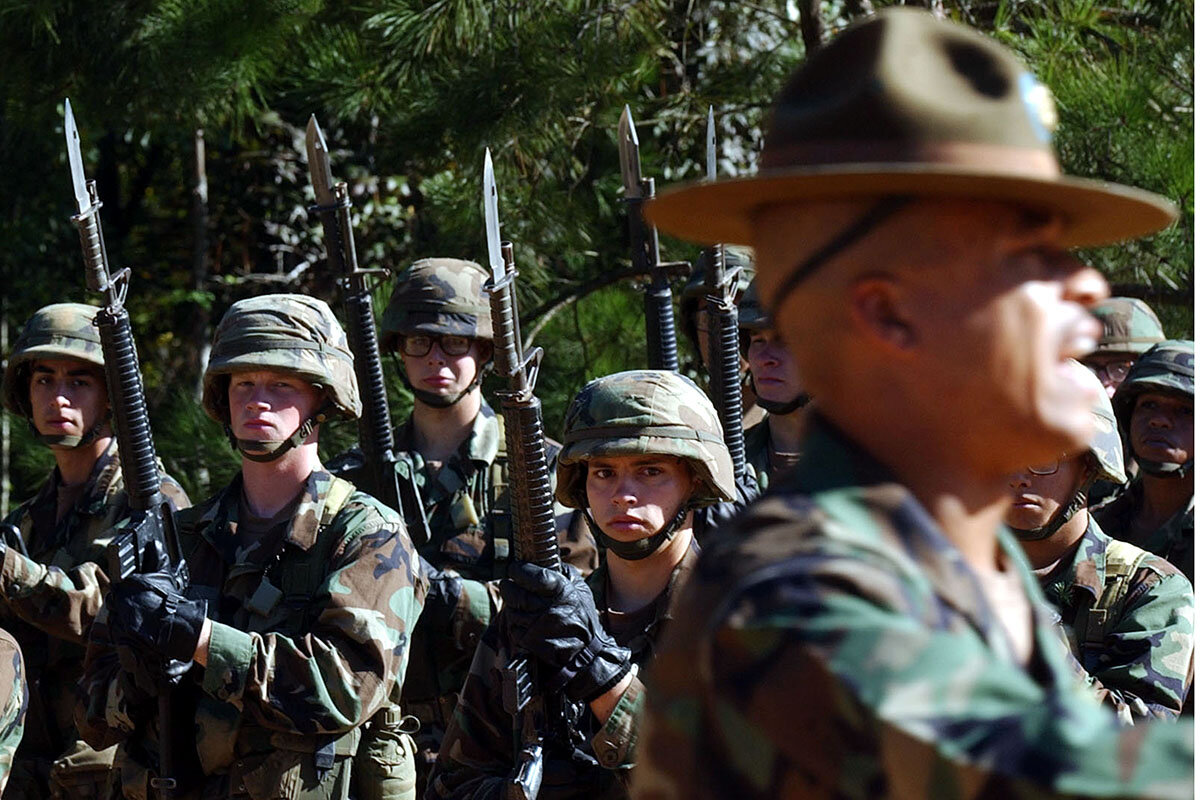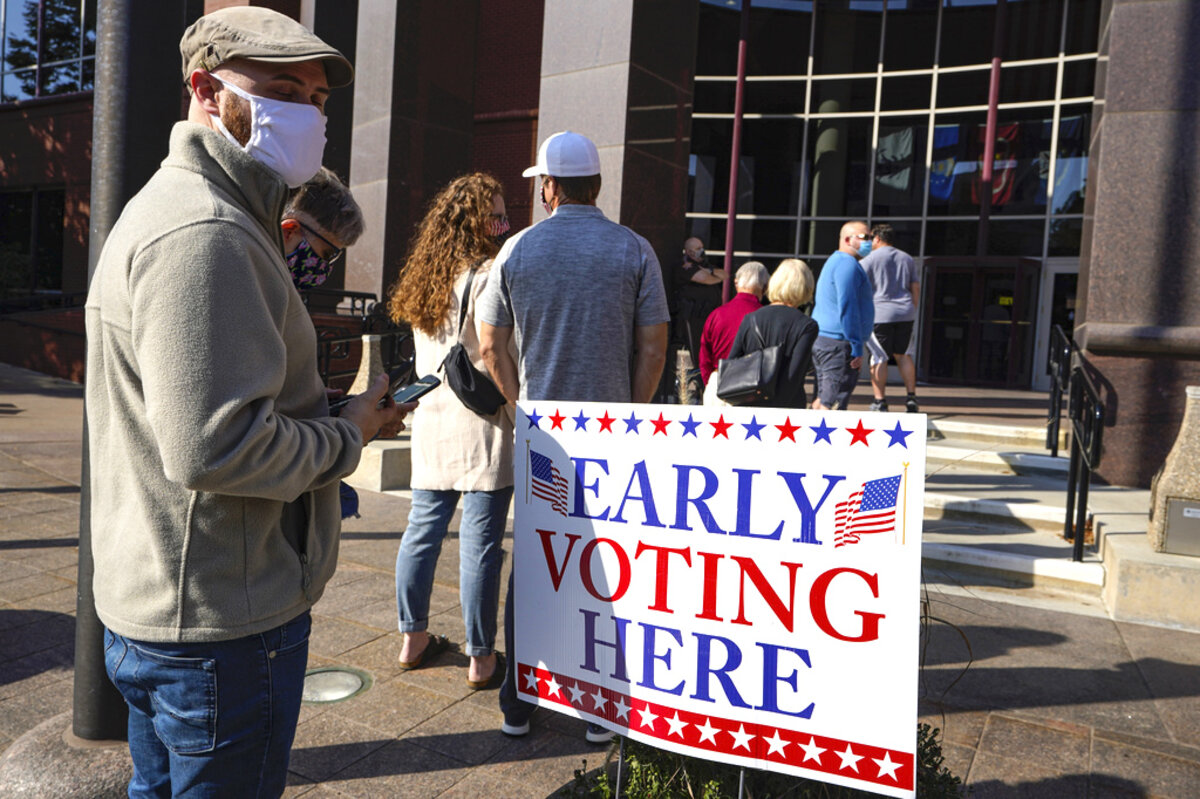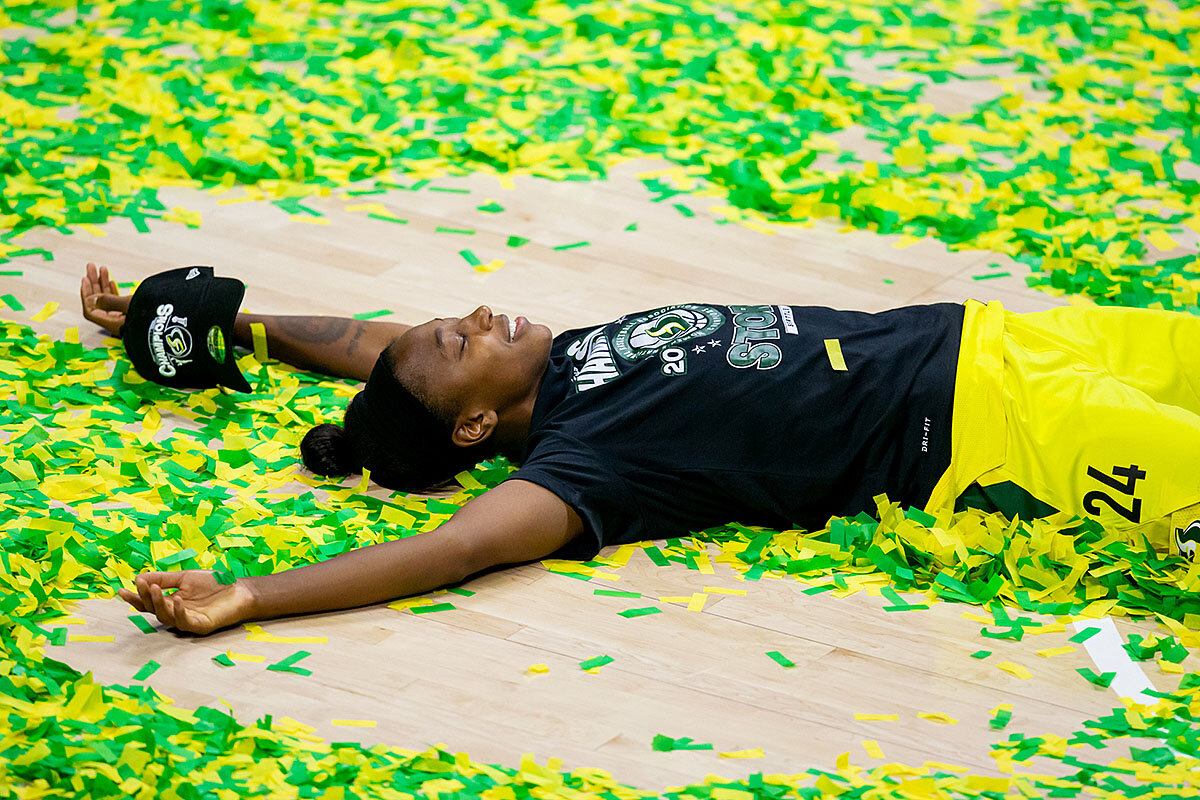For most Americans, worrying about voter intimidation or electoral fraud is what other countries face. Not so this year. A sharp rise in both early voting and the expected number of partisan poll watchers, as well as concerns about postelection legal challenges, has raised anxiety about the integrity of the results.
Yet in spite of these concerns, or perhaps because of them, Americans appear more determined than usual to keep their democracy intact.
This week, as early voting started in earnest across most of the United States, there were signs voters are responding to the unique circumstances of casting ballots during a pandemic and heightened unrest. Florida, for example, extended the deadline for voter registration to accommodate a surge in applications. The state’s online system crashed repeatedly under the strain of some 1 million registration attempts per hour. In Indiana, voters waited peacefully for more than two hours to cast ballots Oct. 6 when polling stations opened.
The United States Elections Project, a voting-trends tracking site maintained at the University of Florida, estimates that more than 5 million Americans have already cast ballots in the 35 states reporting early voting statistics. At the same point four years ago, the site counted fewer than 75,000 ballots cast. These numbers suggest two things. First, voters are heeding calls to give states more time to process an expected increase in mail-in balloting due to the pandemic. And second, that overall turnout this year may reach historic highs.
Professor Michael McDonald, who manages the site, estimates 150 million Americans will cast ballots, or what would be a record raw number and the highest turnout rate since 1908. This means civic-mindedness may also be at a high point.
Experiences in other countries show that electoral divisions can be overcome, especially with more inclusiveness, greater voter participation, or outside pressure.
In South Africa, an 11th-hour decision by a key faction to end its boycott of the country’s first-ever democratic election in 1994 was key to breaking four years of grisly preelection violence. Turnout at the polls was nearly 90%, giving the new government a more durable mandate. In Kosovo, prior to its first post-independence election in 2008, officials wisely held local elections to boost minority participation and build credibility for a future national government.
In societies without deep democratic traditions, election monitoring has become a mainstay of international diplomacy. During a tense audit of elections results in Afghanistan in 2014, the two rival candidates agreed to a U.S.-brokered deal to form a unity government. They recognized that a dispute over electoral fraud was undermining the country’s already fragile stability. The pact had its faults, but it eased immediate threats of wider conflict.
Americans are hardly in a civil war but it is well to recall President Abraham Lincoln’s 1863 visit to Gettysburg where he defended the nation’s founding ideals and the sacrifices made in defense of them. In divided times, politicians have often used the Pennsylvania site for similar purposes. In 1963, then-Vice President Lyndon Johnson journeyed there during the civil rights era to proclaim a vigil of racial justice. On Tuesday, Democratic presidential nominee Joe Biden spoke at the Civil War battlefield about the ability of fair elections to reconcile Americans. “The power to vote,” he said, “is the noblest instrument ever devised to register our will in a peaceable and productive fashion.”
Just by itself, the shared experience of voting is a strong signal that Americans want to join together in improving the country as a whole. “Love is the only force powerful enough to overcome those incredibly powerful forces that are pulling us apart. You can’t love the country without caring about all of our fellow Americans,” said Bob Boisture, president of the Fetzer Institute, told The Chronicle of Philanthropy.
Concerns for the 2020 election process are already being lessened as more voters and more state officials step up like never before. Americans can wear two hats at once – partisan voter and democracy protector. At this point, the latter hat appears bigger.
 David Clark Scott
David Clark Scott










